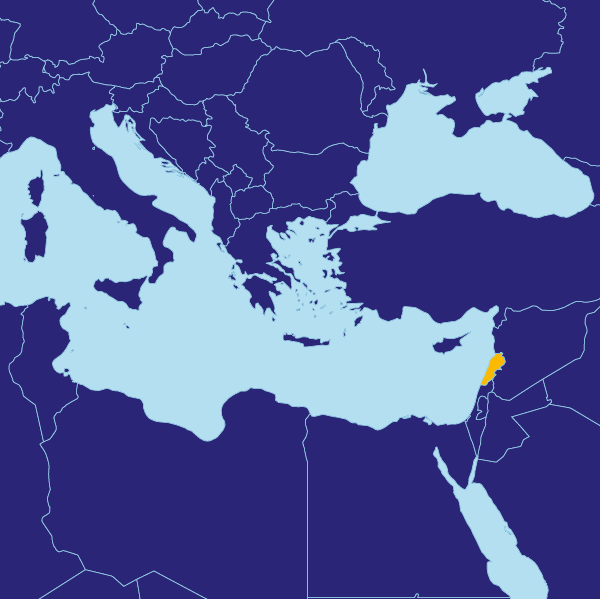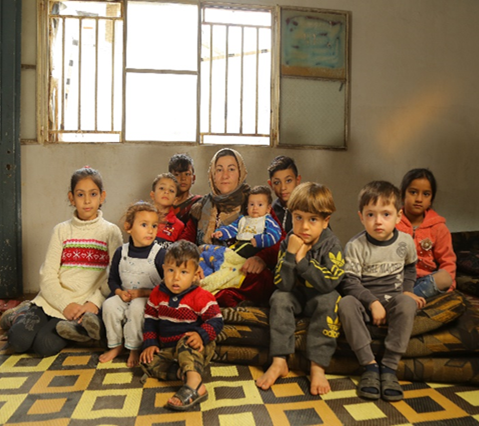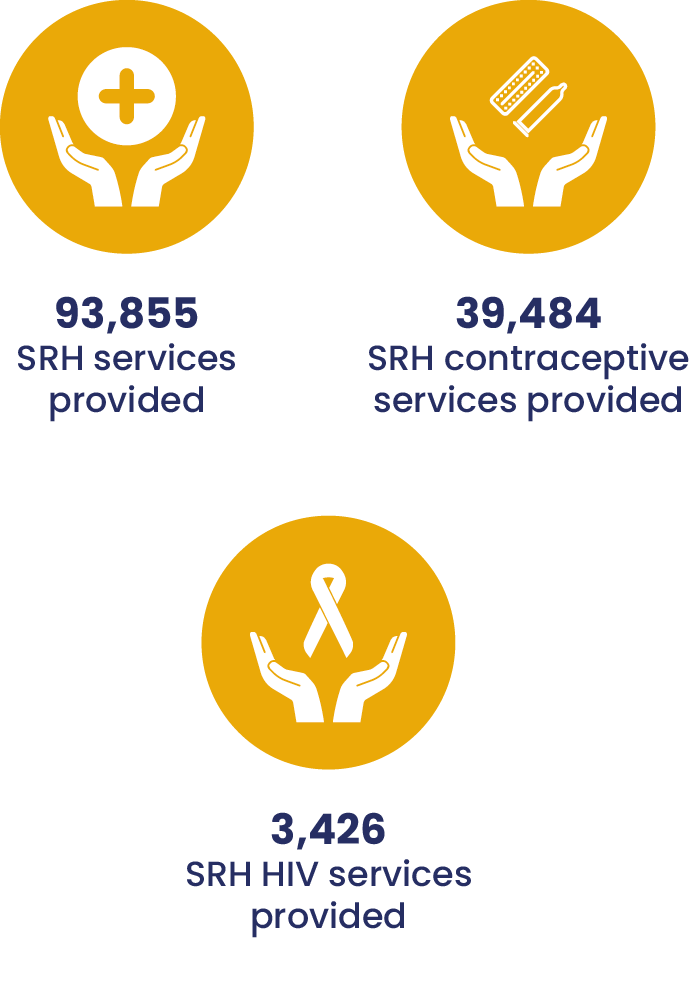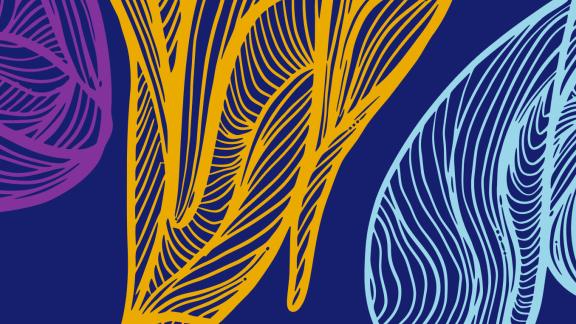Project period: September 2019 – December 2021
Implementing MA: Lebanese Association for Family Health (SALAMA)
Project goal
The project in Lebanon aimed to improve the sexual and reproductive health (SRH) of Syrian refugees and host communities in Bekaa, Lebanon, by providing rights-based integrated and quality SRH and HIV services for vulnerable women, men, youth, children and new-borns.
Project objectives
The project aimed to reduce maternal, neonatal, and general SRH mortality and morbidity among Syrian refugees and host communities by increasing SRH, family planning (FP), and HIV-related service provision by 30%; and to empower 6,300 Syrian refugees and 1,620 people from host communities to make informed decisions regarding their SRH, enabling them to act on those decisions, and prevent HIV transmission.
Project background
Lebanon faced massive social unrest, political instability, serious governance problems and economic meltdown all overlaid by the COVID-19 pandemic and an already overstretched health system.

Project achievement
The project supported a large number of Syrian refugees and people from the host communities with the provision of much-needed high-quality SRH services. This included distributing dignity kits, building capacity for staff and volunteers, empowering communities, and campaigning to raise people's awareness and advocate for sexual and reproduction health and rights (SRHR).
SALAMA volunteers and staff provided awareness-raising sessions to 8,950 beneficiaries at clinics and during mobile outreach. The sessions covered FP methods, unsafe abortion, SGBV, STIs and HIV, breastfeeding, breast cancer, nutrition, hygiene, pregnancy, COVID-19 and relationships. The project team used the distribution of dignity kits as an opportunity to improve women’s awareness of their SRHR to enable them to make informed decisions and seek the services they need.
To engage men in SRHR, SALAMA recruited a urologist to provide services for men. Male youth volunteers were also recruited to deliver SRHR awareness sessions and to help at the clinics.
SALAMA used the power of social media to reach targeted audiences. Awareness raising campaigns covered the international week of breastfeeding, breast cancer awareness month, and the 16 Days of Activism against SGBV. A series of videos on YouTube covered sexual harassment, domestic violence, and child marriage. The combined social media campaigns reached more than a million views.
The project team produced a brochure on breastfeeding in collaboration with the Lebanese Order of Midwives which included positive messages on breastfeeding using imagery rather than words.
Paediatric services and the 200 ‘Mama-baby’ kits handed out to pregnant women were extremely valuable as medication, pads, nappies and milk were unavailable or unaffordable due to ongoing crises in the country.
A participatory approach was used to evaluate the project. SALAMA mobilised their youth volunteers and the project’s target population to give feedback and recommendations to improve activities during implementation.
The project was adversely affected by political unrest, COVID-19, and by the financial crisis, particularly in the first year of the implementation. However, during the second year, the project made good progress to far exceed its targets.

My name is Sarah, a mother of 10. I got married when I was 16, today I am 27. We fled from Syria due to the war. We settled in a refugee camp. One day we were at the camp, young ladies from SALAMA Organization passed by and explained a lot of topics related to health and reproduction. The counselling session was confidential; no one knew what we were talking about.. My visit to SALAMA changed my life, and made me take care of myself, my health and my kids.
Sarah
Client

Key achievement in numbers
| Indicators | Project targets | Project total |
| # of SRH services provided | 41,750 | 93,855 |
| Of which contraceptive services | 39,484 | |
| Of which obstetric services | 18,773 | |
| Of which HIV services | 3,426 | |
| # of non-SRH services provided | 8,649 | |
| # of condoms distributed | 31,945 | |
| # of people reached with services | 5,000 | 7,872 |
| # of people reached with information | 7,920 | 8,950 |
| Others | ||
| Distributed 1,000 dignity kits and 200 ‘Mama-baby’ kits. | ||
| Reached an estimated one million people through social media campaigns. | ||
Project videos
when







